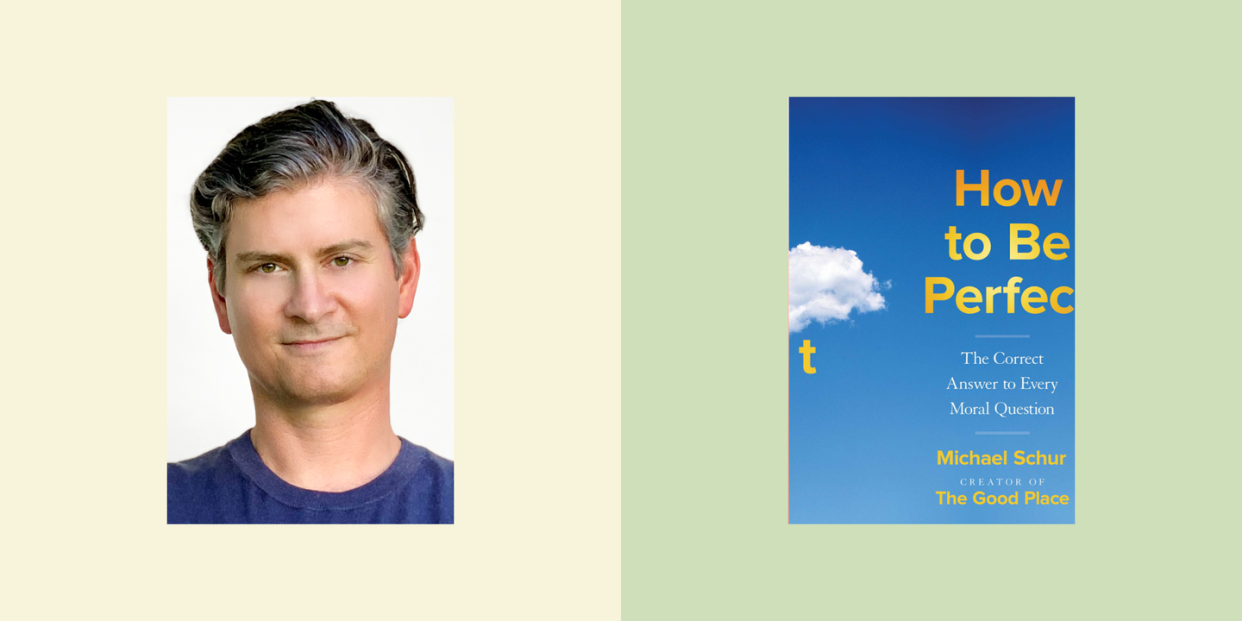“How to Be Perfect” Provides Road Maps on Living in the Present

- Oops!Something went wrong.Please try again later.
Bibliotherapy is the practice of reading to heal the mind and soul. The book can be anything—novels, poetry, the Cambridge World History of Food, 50 Shades of Grey, or philosophy. Sigmund Freud used bibliotherapy on his anxious patients; no doubt he recommended books on cigars. In World War I, soldiers suffering “shell shock” (what we now call PTSD) were given books to help ease their psychic wounds. The notion that reading is a mental salve is an old one. Over 3,000 years ago, the library at Thebes was inscribed with the motto “A house of healing for the soul.”
We have been enduring a long, dark night of the soul, and we need the uplift of a good book now more than ever. Reading is an opportunity for escape from the everyday, but it’s also an opportunity for reflection and mindfulness—a way to run a flashlight around in our thoughts. If you choose to read Plato’s “Apology,” you’ll be reminded of Socrates’s maxim: “The unexamined life is not worth living.”
Fortunately, into this time of uncertainty has been born a clever and engaging book that is just the bibliotherapy the doctor ordered: How to Be Perfect, by Michael Schur.
If you recognize Schur’s name, it’s most likely as the creator and writer of The Good Place, a sitcom about a group of dead people struggling in the afterlife to become better. Schur’s genius was to make sure their journey, though filled with big, important questions, was also wildly entertaining. But if you’re ready to examine your life and think deep thoughts before you pass over, Shur’s new book is a very “good place” to begin.
In How to Be Perfect, he surveys the history of moral philosophy across thousands of years in pursuit of answers to such essential questions as: Am I a good person? Am I contributing to the world in a positive way, and am I doing it often enough? And also: Am I spending too much time navel-gazing, instead of just getting on with life?
Schur’s gift to the reader is his ability to distill the writing of ancient philosophers such as Aristotle and Socrates, more recent ones such as John Stuart Mill and Jeremy Bentham, and modern thinkers such as Pamela Hieronymi and Peter Singer into breezy, engrossing chapters. It’s as if the author has his arm around your shoulder and is whispering in your ear, Come on, give it a go; this is going to be fun. It’s a lively romp through moral philosophy that’s not dumbed down to be the philosophical equivalent of the chicken dance.
I’m relieved that Schur doesn’t give us 12 rules to live by, or a fixed list of ways to be good. How to Be Perfect is joyously absent of the bossing around you get from certain self-help scolds. Instead Schur’s approach is flexible–he offers lots of ways to examine a situation and make moral decisions. As we continue to navigate the new world we live in, Schur gives us not one road map but many.
Despite its somewhat daunting title, How to Be Perfect doesn’t expect perfection from the reader. Schur knows we all contain, in the words of the Buddhist monk Thich Nhat Hanh, “flowers and garbage.” His approach to living an ethical life is not memorizing Immanuel Kant’s Metaphysics of Morals. Rather, he simply wants us to care about living a good life and be conscious of our beliefs and actions. Doing good is hard, and we will fail, he reassures us. But in the words of Samuel Beckett, “Ever tried. Ever failed. No matter. Try again. Fail again. Fail better.”
I’m not a doctor, but as bibliotherapy, I prescribe How to Be Perfect to anyone trying to make moral choices in a complex and confusing world—which is all of us.
Karen Duffy is the New York Times bestselling author of Backbone. Her new book, being released in April, is Wise Up: Irreverent Enlightenment from a Mother Who’s Been Through It.
You Might Also Like

